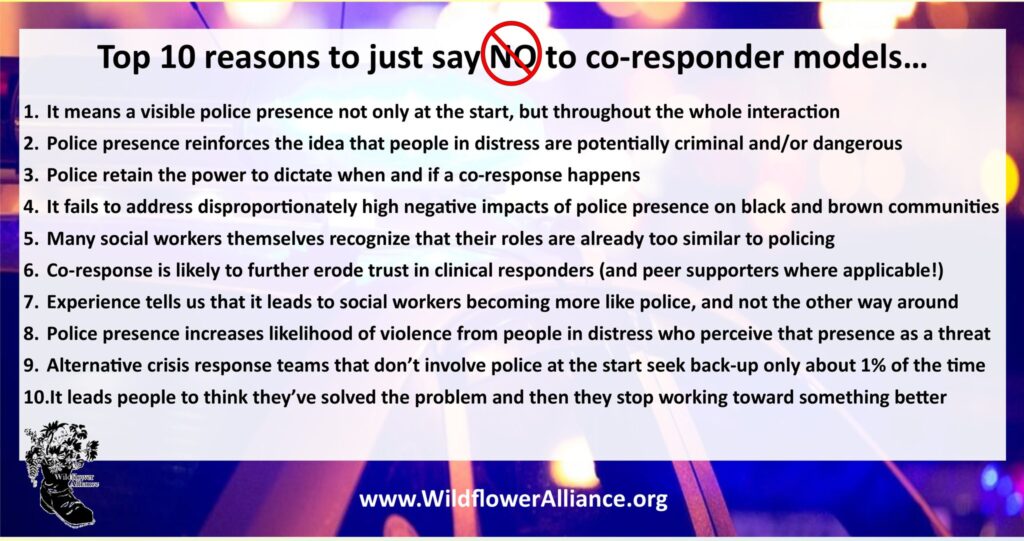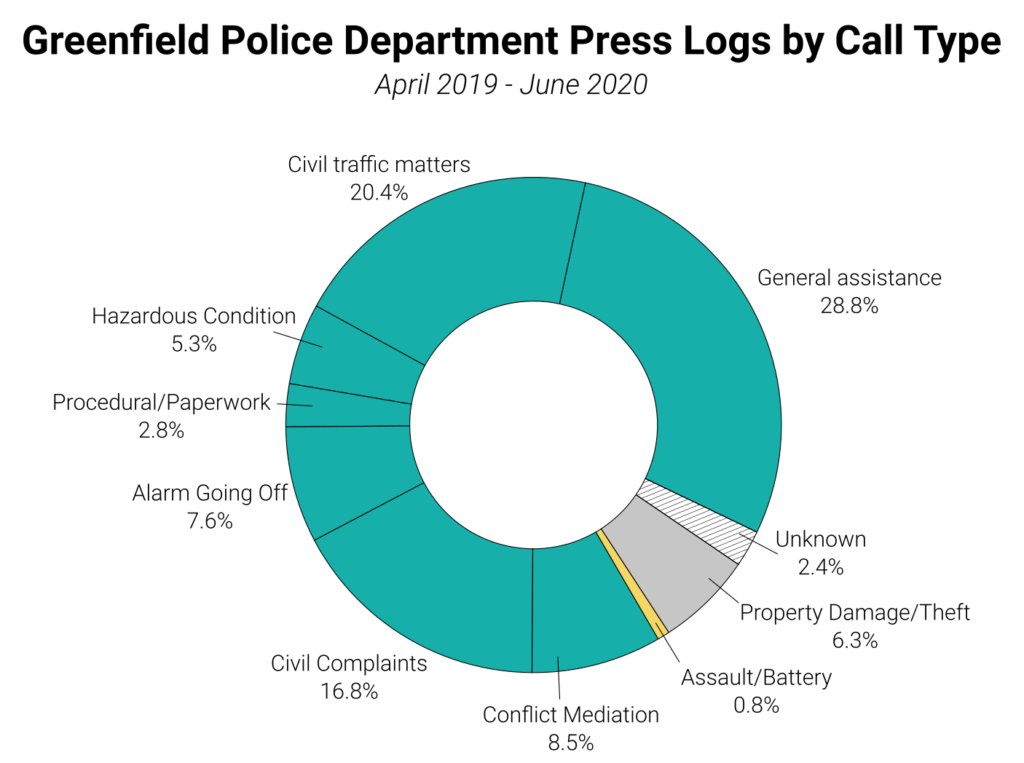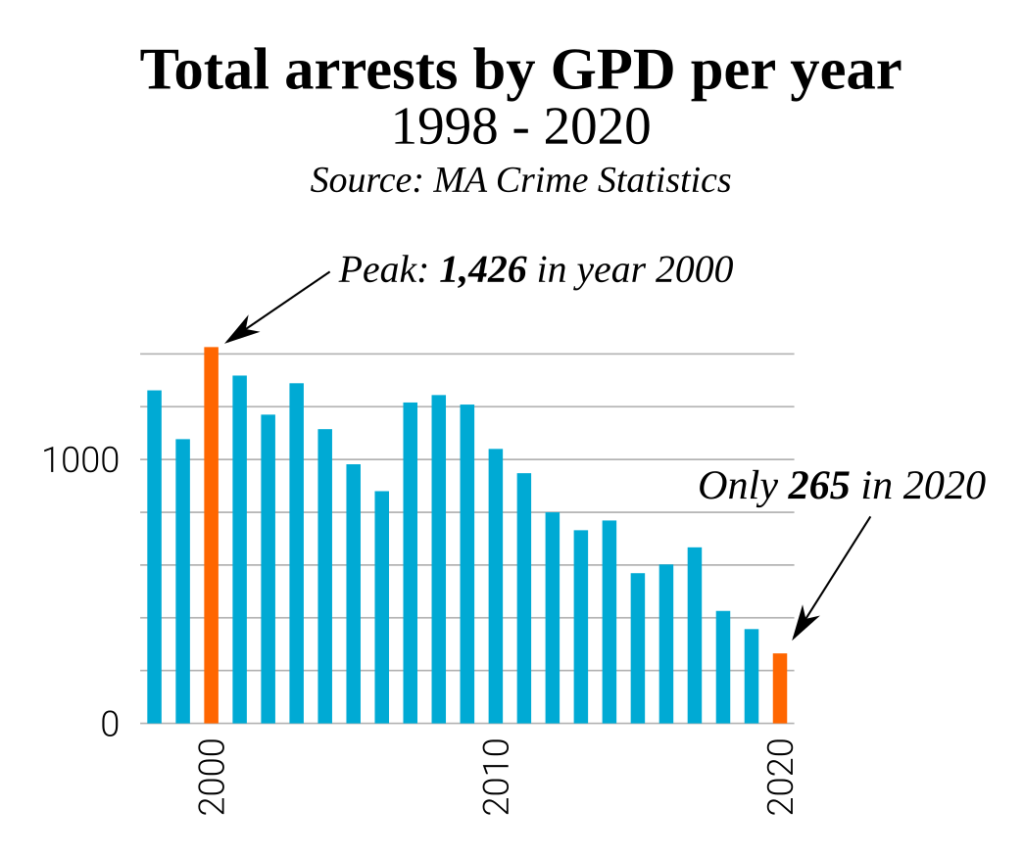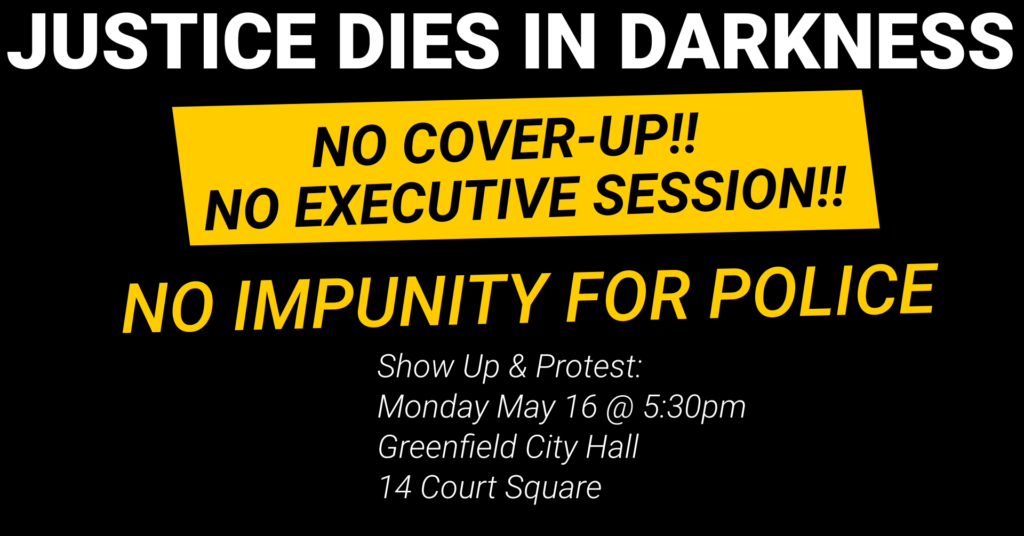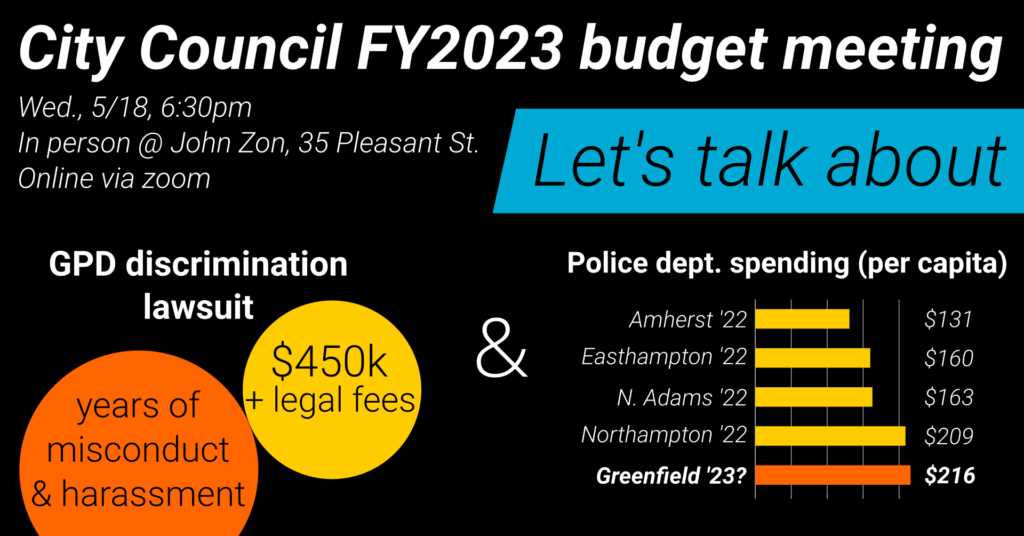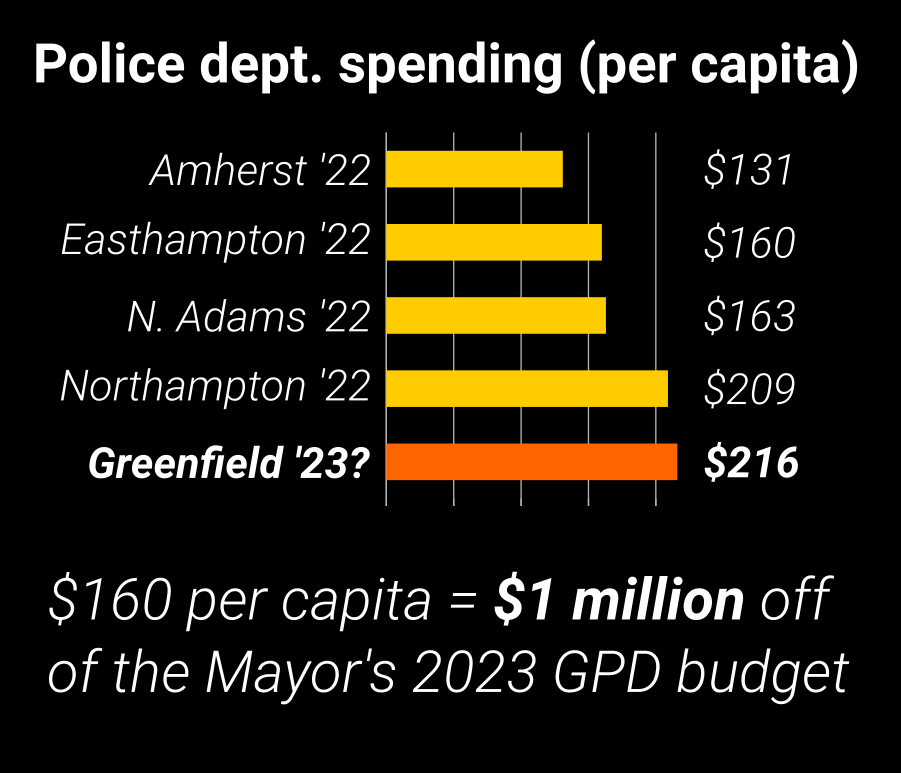We firmly believe that Chief Haigh should be removed as police chief of Greenfield. We have heard many people defend Haigh, including in public comments at the City Council meeting. Unfortunately, Haigh’s defenders have mischaracterized our reasons for saying he has to go.
Let’s lay out the reasons, team.
- First and foremost, LACK OF PUBLIC CONFIDENCE. Haigh will never again have public confidence as Chief of Police. The Chief is above all else a manager who has to respond to community expectations, manage personnel and programs, and uphold professional standards. As we outline below, Haigh has failed on these counts.
- DISCRIMINATION. The jury found a preponderance of evidence suggesting he and the City discriminated against Buchanan. This is the second time the City lost this case–the first time was in arbitration. It’s very hard to win a discrimination case, and Buchanan did it twice. Haigh’s discrimination practices have cost the city’s insurance $1 million, a cost that will be passed on to residents through premiums. Evidence from the trial also suggested that Haigh has accepted at face value the general sentiment at GPD that Laura Gordon is “a complainer” and “not well liked” after her lawsuit and settlement for harassment and discrimination, and Haigh appeared to accept this as a reason not to promote her.
- LACK OF DISCIPLINARY ACTION. The Buchanan case demonstrated that Haigh neglected to impose disciplinary action against officers for a range of serious offenses. McCarthy seized the cellphone of his daughter’s ex, and he also held onto seized drugs and cash for 8 weeks with only a ‘verbal warning.’ Clark was inebriated on duty multiple times with no disciplinary action, despite having operated a cruiser and having a gun. Rode was known to be a bad driver, but when he killed someone with his cruiser he remained on payroll with no disciplinary action for months and months and was fired only when he was finally convicted of homicide. (We have also heard allegations about Buchanan’s own misconduct as an officer but none of this appears in the record. Where is the disciplinary action or at least evidence of reprimand?)
- DISREGARD FOR COMMUNITY CONCERNS AMIDST CONTROVERSY. Haigh covered for McCarthy and his Confederate flag during the 2015 controversy. He disregarded the public’s concerns and demands. He resisted the Human Rights Commission’s efforts to deal with the controversy. He never initiated an investigation or disciplinary action against McCarthy, not even with all the hateful harassment directed at the parent who originally brought the flag to the public’s attention. Later, having learned nothing from this experience and showing total contempt for the issue of human rights, Haigh later assigned McCarthy to investigate the harassment of Penny Ricketts and Rudy Renaud. Even when the City Council passed legislation requiring GPD to appoint a Civil Rights Officer to lead such investigations, Haigh neglected to appoint anyone to the position, a breach of municipal law.
- RETALIATION AGAINST COMPLAINTS. A nurse was arrested out of her shower, after GPD officers entered her home with no warrant and only on suspicion of OUI. She was never charged. In her official complaint, the nurse listed damning details of the behavior of GPD officers, including calling DCF on her out of retaliation. When she later angrily complained to the officer who arrested her, Haigh informed her employer and got her fired. The Public Safety Commission, helmed by Haigh’s former father-in-law, declined to form an opinion as to whether Haigh’s retaliation was appropriate or not.
- LACK OF CONCERN FOR RACIAL DISPARITIES IN GPD ENFORCEMENT. GPD’s own data shows that Black drivers are disproportionately subject to traffic citations, and Black people are arrested at a significantly higher rate than white people. Black people make up approximately 2% of the population of Greenfield but receive about 7% of traffic citations and 9% of arrests. Under Chief Haigh, the department’s annual reports on “bias based policing” have shown no curiosity about why this biased policing happens.
- DISRESPECT FOR CITY COUNCIL AND BUDGETARY PROCESS. It is the responsibility of councilors to evaluate the propriety of budget requests made by the mayor and department heads. For FY22 Haigh requested $5 million for police station upgrades with about as much detail as you could scribble on a napkin. His later comments about what the project entailed were inconsistent. When pushed for clarity, Haigh became defensive, bullying, and acted entitled to the funds. Similarly for FY23 Haigh requested nearly $1m for a new sally port (covered garage/entrance to the police station) as part of a larger capital request. When pressed whether he had considered cheaper ways to replace the sally port, Haigh showed no regard for thrift or willingness to consider alternatives. In fact, Haigh was at a bar when he was scheduled to appear at the council’s budget hearing. When he arrived almost an hour late, he took a disrespectful tone with councilors.
We understand that the process for terminating or demoting Chief Haigh is prescribed by his contract and must show “just cause” according to MA Civil Service laws (MGL Ch. 31). We strongly believe all of the reasons shown above, which are all part of the public record, are clear evidence that Haigh is not fit to serve as chief of police in Greenfield.
Read the court documents: Buchanan vs. Haigh and City of Greenfield
- Description of the case: detailed back story about unequal discipline of white officers (including McCarthy) vs. Buchanan
- Expert assessment of GPD disciplinary/internal affairs process, detailing deficiencies in Haigh’s discipline of officers. Includes major infractions by Dan McCarthy (seizing the cell phone of a young man who had been involved with McCarthy’s adult daughter; seizing cash and drugs and not turning them in) that warranted no significant disciplinary response or investigation; as well as Chief Haigh’s targeting of a Baystate nurse for termination by her employer, after she complained that officers entered her home without a warrant, removed her from the shower, forced her to get dressed while they watched, and later dropped all charges.


